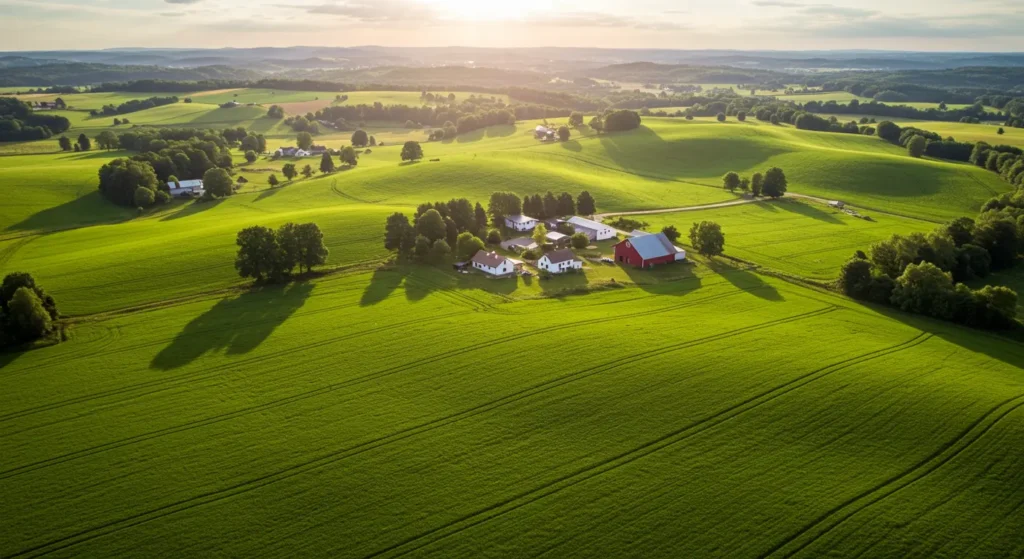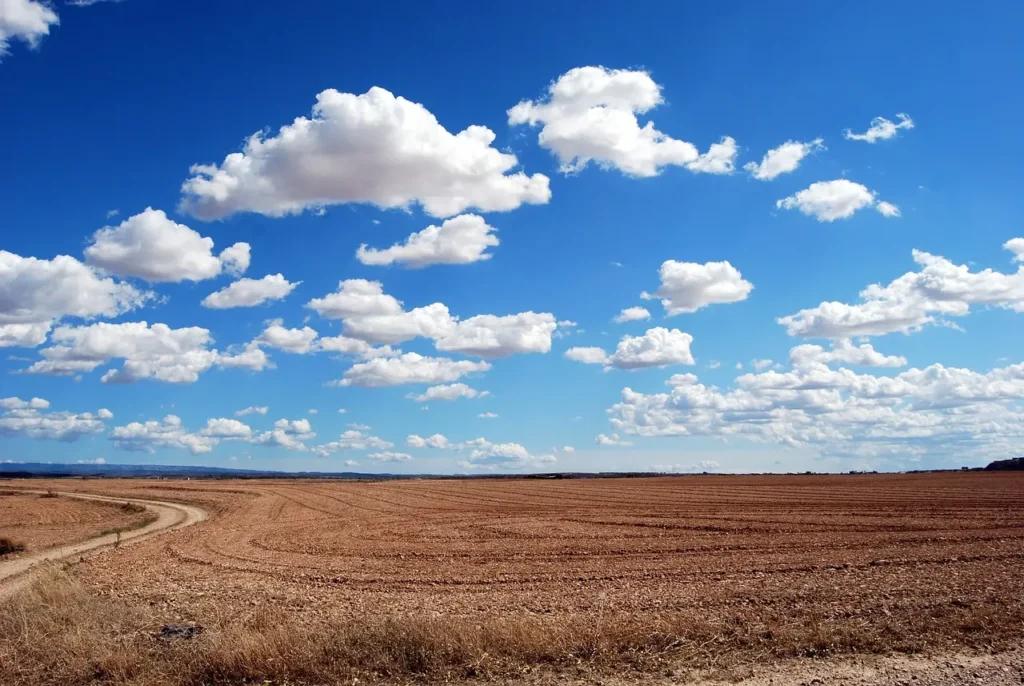When most people think about building wealth, their minds jump to stocks, retirement accounts, or maybe even crypto. But there’s another powerful and often overlooked piece of the puzzle which is land. It’s been a source of wealth for generations and continues to be one of the most quietly reliable investments around.
So let’s get straight to the point: is land an asset? Yes. But that answer only scratches the surface. Land is not just an asset; it’s a versatile, long-term powerhouse with layers of financial potential that deserve a closer look. Whether you’re a homeowner, investor, or just curious, understanding land’s role in your portfolio could change the way you think about money entirely.
Land as a Tangible and Financial Asset
Before diving into investment strategies or comparing land to other types of assets, it helps to clarify what qualifies something as an “asset.” In simple terms, an asset is anything that holds value and has the potential to provide future economic benefits. This can be something physical, like a building, or intangible, like a patent. Land, being both physical and enduring in value, is a textbook example.
But land is unique in a few important ways:
- It doesn’t wear out like machinery, vehicles or even structures, like homes and apartment buildings.
- It doesn’t depreciate in the way most fixed assets do.
- It’s scarce, there’s only so much of it, and that scarcity can drive long-term value.
While the world of investing has evolved to include digital assets and global markets, land has remained a steady, time-tested form of wealth that bridges generations.
The Many Roles Land Can Play
Let’s break down the different ways land operates as an asset depending on who owns it and how they use it. Whether you’re an individual looking to secure your financial future or a company tracking fixed assets on a balance sheet, land fits the definition of an asset in several ways.
Personal Ownership: Stability and Potential
For individuals, land often represents security. Owning property, even a small plot, can offer both psychological and financial benefits. It’s something you can touch and feel. It’s not subject to the wild daily swings you see in the stock market. And depending on the location, zoning, and market trends, it can appreciate significantly over time.
Think about someone who buys land on the outskirts of a growing town. That property might be affordable now, but with urban expansion, infrastructure development, or rezoning, its value could double or triple over time. This kind of slow-building value makes land appealing for long-term wealth accumulation.
Business Ownership: A Balance Sheet Booster
In the business world, land is categorized as a fixed or non-current asset, which means it’s not intended for quick turnover like inventory or accounts receivable. You’ll find land listed in the Property, Plant, and Equipment (PP&E) section of a balance sheet. This classification alone speaks volumes about its value, businesses don’t list things here unless they’re considered vital for long-term operations or growth.
Another critical difference: land doesn’t depreciate. Most fixed assets lose value over time and need to be replaced or maintained. But land stays on the books at cost (or market value, in revalued models), which makes it a strong stabilizer in an asset portfolio.
Why Land Stands Out From Other Assets
So, if land is a solid asset, the next question becomes, how does it stack up against other options? Compared to things like mutual funds, rental properties, or even savings accounts, land brings a different kind of value to the table.
Appreciation Potential
One of the biggest reasons land is seen as a good asset is that it usually goes up in value over time. While the real estate market can rise and fall, land often remains a resilient part of that equation. Especially in high-growth areas, land values increase due to demand for housing, commercial development, or infrastructure projects.
Land in a prime location, say near a planned highway or a booming city, can become significantly more valuable with very little effort on the owner’s part.
Lower Maintenance Requirements
Unlike rental properties or commercial buildings, raw land requires very little to keep it in shape. No plumbing. No HVAC systems. No tenants calling in the middle of the night. While you’ll still need to manage taxes, permits, or occasional land clearing, the costs and time commitment are far lower than with more complex real estate holdings.
This hands-off nature appeals to a lot of people who want to invest without becoming landlords or full-time property managers.
Diverse Usage Options
Flexibility is another underappreciated benefit of land. Buy it and leave it? Sure. Lease it to farmers or ranchers? That works too. Want to build your dream home or even a small commercial building? Also, an option.
This versatility allows landowners to pivot their strategy based on market conditions or personal goals, which isn’t always possible with other asset types.

The Investment Case: Turning Land Into Income
It’s one thing to say land holds value. It’s another to turn it into actual income or profit. For investors, this part is key. Here’s how land can become a money-maker:
Passive Income Through Leasing
If you own farmland, pastureland, or commercial parcels, you can lease the land for agricultural use, grazing, cell towers, billboards, parking, or temporary construction staging areas. These arrangements often require minimal involvement and can produce consistent returns.
Development and Subdivision
For those with more capital and risk tolerance, land can be developed and resold at a higher price. This could mean building homes, subdividing lots, or even turning a rural property into a glamping site or off-grid Airbnb destination.
Land Flipping
Similar to house flipping, land flipping involves buying undervalued properties, improving or repositioning them slightly (such as clearing trees or obtaining basic zoning permits), and reselling them for profit. Because land doesn’t need inspections or repairs, the flipping process can be quicker and less complex.
Risks and Challenges of Owning Land
Of course, land isn’t a flawless asset. Like any investment, it comes with risks, and it’s important to know them upfront.
Liquidity Concerns
Land can be harder to sell than other investments. If you need cash fast, you’re better off with a savings account or a liquid stock. Even in a hot market, land sales can sometimes take longer to sell.
Market and Regulatory Factors
The land’s value can be affected by local regulations, environmental rules, zoning changes, or nearby development (or lack thereof). Just because you can buy land doesn’t mean it will automatically appreciate. Doing your due diligence before purchasing, checking zoning laws, property access, environmental restrictions, etc., is a must.
Land in the Digital Age: New Ways to Buy and Sell
Thanks to the internet, land investing has become more accessible than ever. Platforms now allow you to research, purchase, and even finance land online without ever visiting the site. While this is convenient, it can also be risky if you’re not careful.
Always confirm:
- The seller is legitimate.
- The land has legal access (road or easement).
- There are no liens or disputes tied to the property.
Remote investing is powerful, but it still requires smart decision-making.
How to Evaluate the True Value of Land
Understanding that land is an asset is one thing, knowing how to determine its real value is another. Unlike houses or commercial buildings, land doesn’t have built-in square footage or tenant income to help set a price. That means it’s up to the buyer (or investor) to dig into a few key factors that affect value:
Location, Location, Location
This one’s a classic for a reason. The closer the land is to growing cities, major roads, or useful resources like water or utilities, the more valuable it becomes. Even rural land can hold strong value if it’s near future development plans or in a region with rising population demand.
Zoning and Land Use Restrictions
You can’t build a commercial warehouse in the middle of protected forestland, or at least, you shouldn’t try. Zoning codes, local ordinances, and land use policies can significantly impact a plot’s potential. Always check with local authorities to see what you can (and can’t) do with a property before purchasing.
Access and Infrastructure
Is there a road that leads to the land? Are water, electric, and sewer lines available? Raw land can be inexpensive, but if you need to spend tens of thousands of dollars to make it usable, that affects its true value. Landlocked parcels or properties with limited access are especially tricky.
Environmental Factors and Surveys
Some parcels are prone to flooding. Others might sit on protected wetlands or have soil that’s tough to build on. Getting an environmental survey, or at the very least, reviewing FEMA maps and local soil reports, can help you understand the land’s real potential and limitations.
Why Land Remains a Smart Long-Term Asset
In a world of high-frequency trading and volatile crypto cycles, land offers something refreshingly stable. It doesn’t move fast, and it’s not flashy, but that’s part of its charm. For investors who value long-term appreciation, low maintenance, and tangible security, land continues to deliver.
Generational wealth often begins with simple property ownership. Families that buy and hold land tend to pass it on, creating financial legacies that last. Unlike digital assets, land can’t be hacked, erased, or lost in a crash.

Conclusion: Is Land an Asset?
To wrap it all up, land is 100% an asset. But more than that, it’s a flexible, durable, and potentially lucrative piece of any financial strategy. Whether you’re looking to diversify your portfolio, plan for retirement, or build something from the ground up literally, land deserves serious consideration. It may not be the most exciting asset in your portfolio, but it might just be the most dependable.
Looking to turn land into a long-term, tax-advantaged investment? IRA Club can help you use a Self-Directed IRA to invest in real estate with confidence. Whether you’re aiming to grow your retirement savings or build a legacy through strategic land investments, their expert team will guide you every step of the way. Take the next step toward smarter real estate investing—your future self will thank you.
Ginis Garcia is a seasoned real estate investor with over 14 years of experience helping both new and experienced investors achieve their goals in the housing and land markets.
- Ginis Garciahttps://thelandmethod.com/author/thelandmethod/
- Ginis Garciahttps://thelandmethod.com/author/thelandmethod/
- Ginis Garciahttps://thelandmethod.com/author/thelandmethod/
- Ginis Garciahttps://thelandmethod.com/author/thelandmethod/


